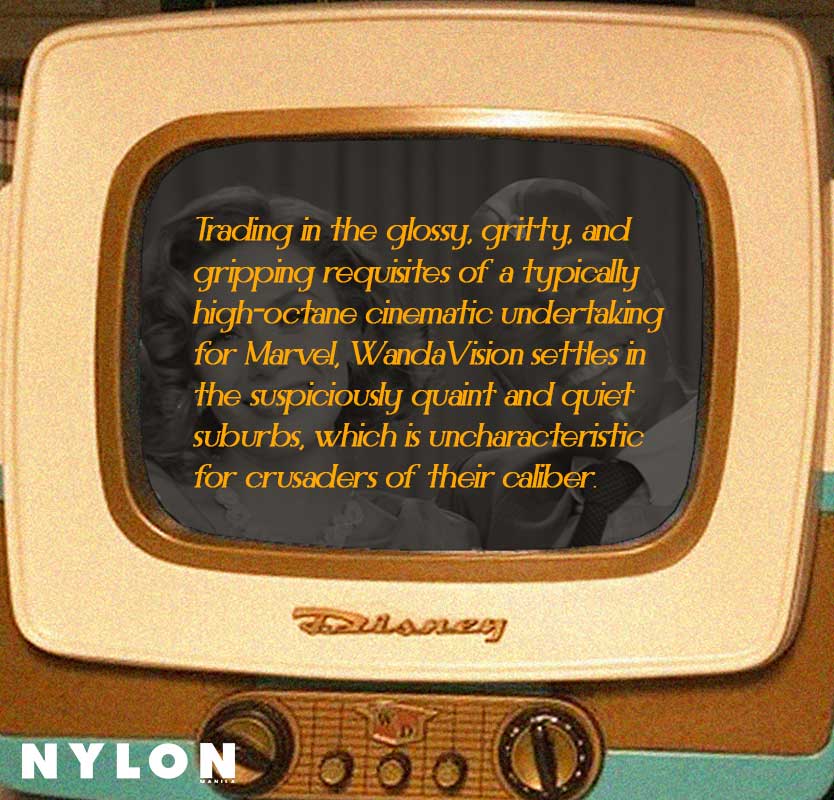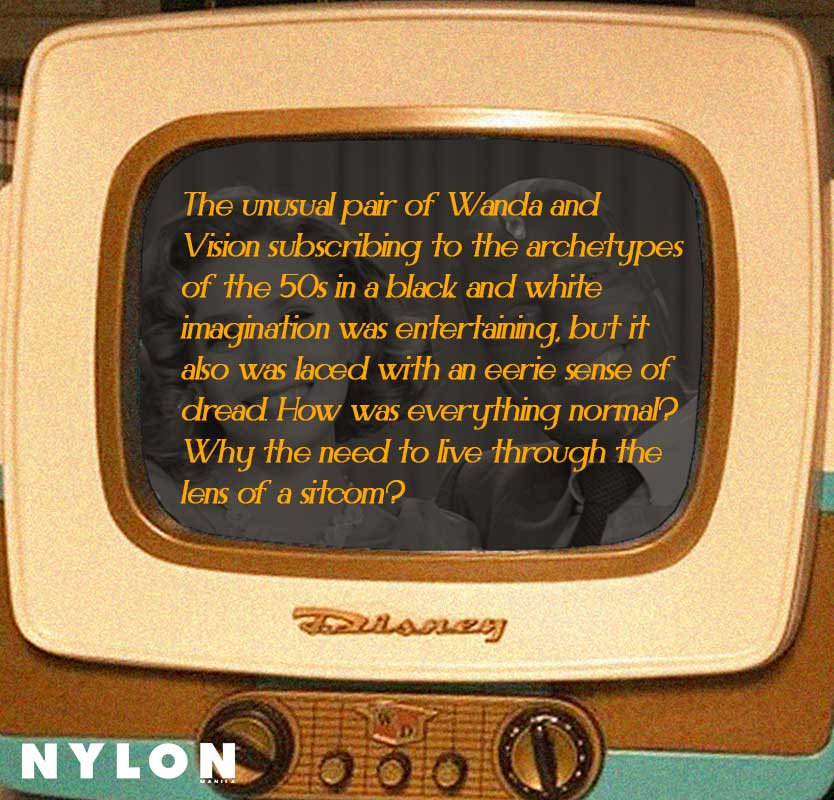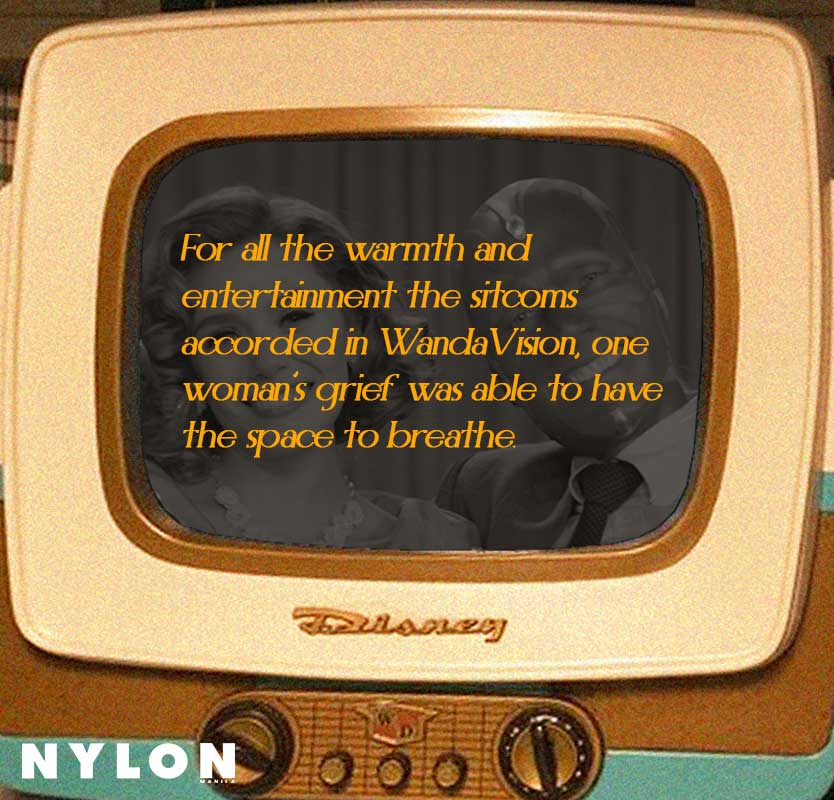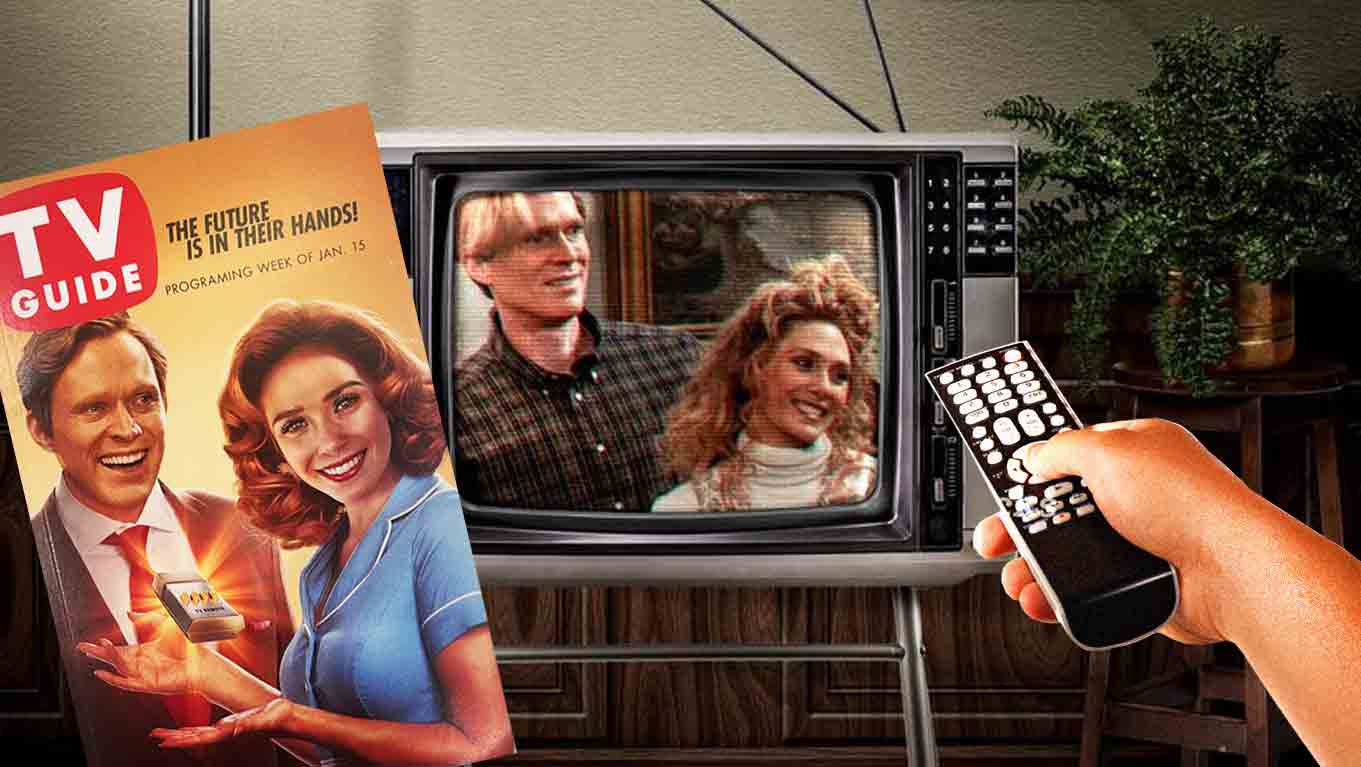As WandaVision draws to a close, we trace back the truth of the TV sitcoms and how it helped propel the story until the very end.
Related: COULD THIS FILIPINO SUPERHERO BE MAKING AN APPEARANCE IN THE MCU SOON?
One would assume once an imminent end draws near in whatever circumstance besets you, there would be more clarity. But for the context that exists in the too convenient reality of Westview, nothing is ever as it seems. In WandaVision, more questions emerge instead of answers in every nail-biting episode. Look, we’re just as confused as you are, no doubt. But here we are, not quite ready to let go of Wanda and Vision’s version of a Shakespearean tragedy—even with the punctuating promise of closure.

Trading in the glossy, gritty, and gripping requisites of a typically high-octane cinematic undertaking for Marvel, WandaVision settles in the suspiciously quaint and quiet suburbs, which is uncharacteristic for crusaders of their caliber. However, in this first foray into the medium of television to further expand the storytelling of superhero canon in the comic books, the heavy-hitting studio is going atypical but considerably groundbreaking for the genre of this sort. Unlike the flash and flex of their films in the past, the emotionally entangled Avengers are transported way back and in a format that was a cornerstone of many a family growing up: sitcoms.
The premise was a big swing: part sitcom, part meticulous metaphysical manifestation, all hemmed by the thread of dark tonal shifts that is necessary to the narrative of Marvel. However, as odd and weird as it sounds, the unusual structure worked unbelievably well, circumventing the convention to great critical and commercial success. The verdict is almost unanimous—earnest and endearing, WandaVision charms in its chaos and magic.
The Truth Of TV Sitcoms In WandaVision
Living in the comforts of sitcom reruns that run across the decades from the 50s to the new millennium, the fine, but unusual pair of Wanda and Vision subscribing to the archetypes of the 50s in a black and white imagination was entertaining, but it also was laced with an eerie sense of dread. How was everything normal? Why the need to live through the lens of a sitcom?

Week after week, WandaVision would take us deep into the genre of sitcoms across the decades, with very little to no explanations other than what nostalgia was compelling us to take in as truth in a clearly fictional reality. It seemed like the perfect American life for Wanda and Vision away in their own little corner, but eventually, the cracks of the simulated perfection would begin to show. Yes, the evolution of small screen sensibilities required it, as with the easing of pretense and precision of the wonder years in favor of the more “real” essaying in the aughts onwards.
The manufacturing of sitcoms insulated the terrors that continue to haunt Wanda, also proving to be a key piece to the puzzle as to why her pain and grief has compelled her power to manipulate fact and fiction in a scale of epic of proportions. With the walls closing in on her each episode, each time frame, and each well-referenced sitcom, the veneer of idealism would slowly relent to the dictates and demands of reality. In a function of psychology, the sitcoms they lived through would reveal itself to be a foundation of Wanda’s childhood, one that is probably her only other pure memory aside from the shared ones with Vision. And in a time of great distress, one always retreats to a respite of peace.
WandaVision Until The End
Just like the many great TV sitcoms of many generations, WandaVision, while not a strictly conforming offshoot of the malleable genre, has its humor, which is hastened by the horrors of reality later on. But most importantly, it leaps off the screen with its heart, because at its core, it is a story of family, belonging, and identity. From Monica Rambeau, Tommy and Billy, Vision, and Wanda, this show masterfully navigates the tropes of sitcoms and parlays the irreverent, the fantastic, and marvelous into something more human than most.

For all the warmth and entertainment the sitcoms accorded in WandaVision, one woman’s grief was able to have the space to breathe. Before the walls closed in on her, she was able to have her happy endings that were all in the family. Of course, the controlled environment, do-overs, and scripted scenes were the necessary to allow Wanda to experience something she was and still is robbed off by circumstance. She got to live, laugh, and most importantly, she got to love without bounds of reality in a memory made real.
“You are my sadness and my hope. But mostly you are my love,” Wanda declares at the drawing of the close. And like they did at the end of their first classic TV sitcom, Wanda and Vision see each other clearly, promising a future together that stands to be at the behest of the uncertain. “Who knows what I might be next,” wonders a wry Vision, to which Wanda’s eyes glimmer with hope perhaps. For a moment in the light, there they were, as WandaVision at the end of this show that until the very end, was never what it seemed.
(PHOTOS FROM MARVEL AND DISNEY+)





